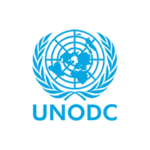The evaluation of the UNODC’s Doha Programme (UDP) was focused on assessing its effectiveness in enhancing the rule of law and promoting a culture of lawfulness across Member States. This comprehensive evaluation aimed to measure the program’s success in achieving its six specific objectives, which include strengthening Member States’ capacities in areas such as countering transnational organized crime, combating corruption and terrorism, rehabilitating and reintegrating prisoners, reducing youth crime, and utilizing education for crime prevention. The evaluation utilized a mixed-method, triangulated approach including document analysis, interviews with 163 (89 M, 74 F) key stakeholders, an online survey with 162 responses (32.4% Response rate), virtualfield missions, focus group discussions, event and webinar observations and other participatory techniques. Note as all planned field missions were cancelled due to the ongoing pandemic, they were conducted ‘virtually’ with data collection tools adapted to the virtual collection. The evaluation team made every possible effort to engage the full array of stakeholders, including staff members, actual and potential partners, beneficiaries, government officials, research institutions and nongovernmental organizations representatives, on these virtual missions.
Projects:
Evaluation of UNODC’s Doha Agenda Programme
Sector: Education
Client: UNODC
Geography: Global
Date: November, 2020

How can we help you?
- Launching a new strategy or reviewing an old one?
- Need new data-driven insights or deep subject-matter expertise?
- Evaluating your performance for course correction or seeking new tools to improve your effectiveness?
DeftEdge helps ensure organizations meet ethical standards and objectives on a range of issues, such as economically empowering women and refugees through access to finance and markets and mitigating the impact of climate change on vulnerable communities. (WFP, FAO, Pact, ActionAid, UNHCR livelihoods partners)
